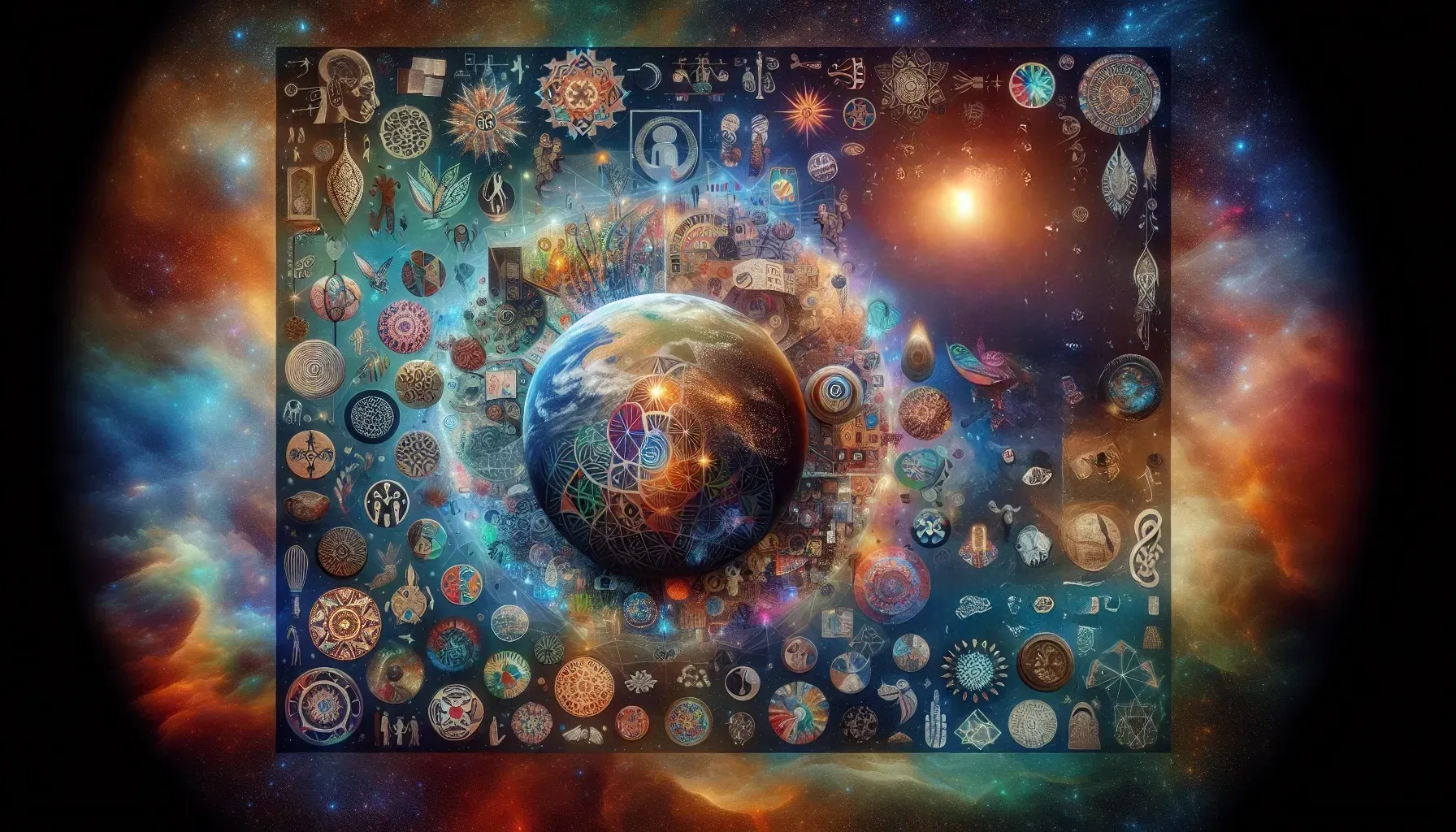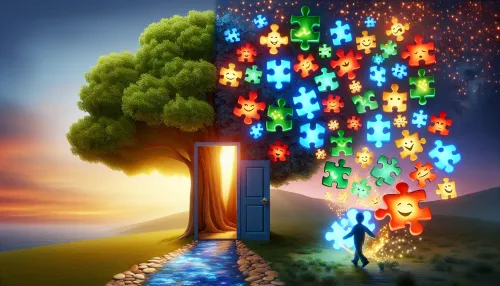Cultural Sensitivity in Autism Care: Embracing Heritage and Diversity for Holistic Support

Autism spectrum disorder (ASD) is a neurological condition that affects individuals from all cultural backgrounds. It's essential to recognize and celebrate the diversity of autistic identities across different cultures. Understanding the cultural nuances surrounding autism allows us to provide more effective support and foster inclusivity within diverse communities.
Celebrating Neurodiversity: Understanding Autistic Identities
In many cultures, the concept of neurodiversity embraces the idea that differences in brain function and behavior should be respected and valued just like any other human variation. Embracing this perspective not only promotes acceptance and understanding of autistic individuals but also encourages the celebration of their unique strengths and contributions. HorizonsMind Blog advocates for this approach, recognizing the beauty in neurodiversity and promoting a culture of acceptance towards autistic identities worldwide.
Cultures around the world have long relied on traditional healing practices to address various health conditions, including neurological differences. When it comes to autism intervention, indigenous knowledge offers valuable insights that can complement modern therapeutic approaches. By incorporating traditional healing wisdom into autism care, we honor cultural heritage while expanding the range of treatment options available to autistic children and their families.
From herbal remedies to traditional therapies rooted in ancestral traditions, indigenous approaches provide a holistic framework for supporting autistic individuals. They emphasize the interconnectedness of mind, body, and spirit, offering a complementary perspective to Western medical practices. Recognizing the significance of these indigenous approaches, advocating for their respectful integration into the broader landscape of autism intervention.
Traditional Healing Wisdom: Indigenous Approaches to Autism
The global exchange of knowledge and experiences plays a pivotal role in shaping autism support practices. As different cultures share their insights and strategies for supporting autistic individuals, a rich tapestry of approaches emerges, encompassing diverse perspectives and methodologies. This cross-cultural exchange fosters innovation and understanding, enriching the collective pool of resources available for autism care worldwide.
We actively engage in this exchange, inviting contributions from experts and advocates representing various cultural backgrounds. By facilitating dialogue and sharing best practices, we promote an inclusive platform where cultural diversity is celebrated as an asset in advancing autism support practices globally.
Related Article: Cultural Resonance and Inclusion: Redefining Autistic Identities and Perspectives Globally
Global Heritages: Cross-Cultural Insights in Autism Support
Cultural celebrations and traditions serve as integral components of identity and belonging for individuals and communities worldwide. Incorporating these celebrations into autism care creates meaningful opportunities for autistic children to connect with their cultural roots, fostering a sense of pride and belonging. By embracing cultural pride within autism care, we empower autistic individuals to navigate their developmental journey with a strong sense of connection to their heritage.
Encouraging the integration of cultural celebrations and traditions into autism support programs, emphasizing the importance of creating inclusive environments where diverse cultural expressions are valued and celebrated.
Nurturing Cultural Pride: Celebrations in Autism Care
Every culture has its unique rites of passage that mark significant transitions in an individual's life. From coming-of-age ceremonies to initiation rituals, these milestones hold deep cultural significance. Integrating culturally relevant rites of passage into the lives of autistic children allows for a meaningful acknowledgment of their growth and development within the context of their heritage.
HorizonsMind Blog advocates for the recognition of culturally relevant milestones in the lives of autistic children, promoting an inclusive approach that honors diverse cultural practices while nurturing the self-esteem and confidence of autistic individuals as they progress through significant life stages.
Language should never be a barrier to accessing essential resources and support for autistic children and their families. Recognizing the linguistic diversity present within global communities, it's vital to provide multilingual resources that cater to diverse language preferences. By offering information and materials in multiple languages, we ensure that families from all linguistic backgrounds can access relevant support services and educational resources.
Culturally Relevant Milestones: Rites of Passage for Autistic Children
In line with this commitment to linguistic accessibility, HorizonsMind Blog actively promotes the development and dissemination of multilingual resources tailored to diverse linguistic communities, fostering inclusivity and equal access to essential autism support materials worldwide.
In conclusion, embracing cultural sensitivity in autism care is fundamental to providing holistic support that respects diverse identities, traditions, languages, and healing practices. Through our collective efforts at HorizonsMind Blog, we strive to celebrate neurodiversity, integrate traditional healing wisdom, facilitate cross-cultural exchange, nurture cultural pride, recognize culturally relevant milestones, and provide multilingual resources fostering an inclusive environment where every child with autism is empowered to thrive within the context of their cultural heritage.
Frequently Asked Questions
Neurodiversity refers to the concept that variations in brain function and behavior, such as autism, should be recognized and respected as natural human differences. This perspective promotes acceptance and understanding of autistic individuals, highlighting their unique strengths and contributions to society.
Traditional healing practices offer valuable insights for autism intervention by incorporating holistic approaches that address the mind, body, and spirit. These methods, rooted in cultural heritage, can complement modern therapies, providing a broader range of treatment options for autistic individuals and their families.
Cross-cultural exchange enriches autism support practices by sharing diverse insights and strategies from various cultures. This collaboration fosters innovation and understanding, ultimately enhancing the resources available for autism care and promoting inclusivity within global communities.
Cultural celebrations play a vital role in fostering identity and belonging for autistic children. By integrating these traditions into autism care, children can connect with their cultural roots, enhancing their sense of pride and helping them navigate their developmental journey more confidently.
Culturally relevant rites of passage are significant milestones that mark transitions in an individual's life within their cultural context. Integrating these ceremonies into the lives of autistic children acknowledges their growth while honoring their heritage, boosting self-esteem and confidence during important life stages.
Multilingual resources for autism support include educational materials and information tailored to diverse linguistic communities. By providing resources in multiple languages, families from various backgrounds can access essential support services, ensuring inclusivity and equal opportunities for all autistic individuals.
Culturally sensitive autism care benefits not only autistic individuals but also their families and communities. By respecting diverse identities and traditions, this approach fosters an inclusive environment where everyone feels valued, ultimately enhancing the overall effectiveness of support provided to those affected by autism.
Yes, traditional therapies can be effectively integrated with modern autism interventions. By combining indigenous knowledge with contemporary approaches, caregivers can create a more holistic treatment plan that respects cultural heritage while addressing the unique needs of autistic individuals.
Recognizing cultural diversity in autism care is crucial for providing effective support. It allows caregivers to tailor interventions that respect individual backgrounds, fostering a sense of belonging and empowerment among autistic individuals while promoting a more inclusive society.
Check Out These Related Articles

Unleashing Potential: Strategies for Inclusive Playtime with Autistic Children

Athletic Achievements: The Triumphant Stories of Autistic Children Defying Odds in Sports

Exploring the Social Isolation Challenge in Autistic Children
